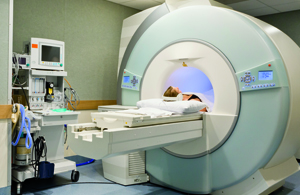Why screen for lung cancer?
11/16/2023 by Denise Dupras, M.D., Ph.D.

As with any screening test, the goal is to detect cancer before you have any symptoms, and when it's potentially treatable. Lung cancer is the leading cause of cancer-related death in men and women. It's estimated that 95% of patients at risk for lung cancer are not being screened, so knowing if you are at risk is important for your health. These FAQs can help you determine if you should be screened for lung cancer and when.
Who should be screened?
Smoking is a recognized risk factor for lung cancer. The number of pack years of smoking and current smoking status help determine your risk for lung cancer. For example, a one-pack year is equal to smoking one pack per day for one year, or two packs per day for half a year. Guidelines have recently changed, but if you're a current smoker or quit within the past 15 years, talk to your provider to see if you need to be screened for lung cancer.
When should you be screened?
Calculators have been developed to help your clinician determine if you should have a low-dose computed tomography (CT) scan. Some but not all scans include non-cigarette inhaled tobacco products. While there are many guidelines and not all experts agree, the U.S. Preventive Services Task Force recommends annual screening with low-dose CT for smokers or individuals who:
- Have quit less than 15 years ago.
- Have a 20 or more pack-year smoking history.
- Are between the ages of 50 and 80.
Other groups differ in their recommendations, including criteria to begin and stop screening. An important consideration when deciding whether or not to get a CT scan is your general health, life expectancy and willingness to undergo curative lung surgery.
What type of screening is used?
Currently, only low-dose CT scanning is recommended for lung cancer screening. Chest X-rays aren't sensitive and specific enough to detect lung cancer early enough to make a difference and prevent death from lung cancer.
The best thing for you to do if you smoke is to stop, which reduces your risk of developing lung cancer. The risk begins to decrease at five years but remains higher than lifetime non-smokers for 25 years after quitting.
Denise Dupras, M.D., Ph.D., is a physician in Community Internal Medicine, Geriatrics and Palliative Care at Mayo Clinic in Rochester, Minn.. She earned her medical and doctoral degrees at Mayo Clinic Alix School of Medicine and completed her residency in internal medicine at Mayo Clinic in Rochester. Her interests include medical education, evidence-based medicine and care of LGBTQIA+ patients.
